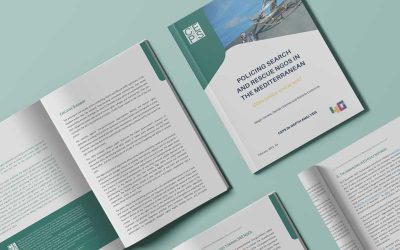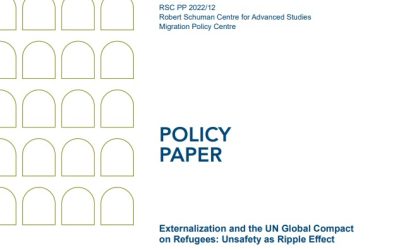This session explored the role of crisis in the scope and features of the proposed reforms of the EU asylum and Schengen acquis, and their impacts on Member States’ discretion, as well as the enforcement of existing EU law standards in these areas.
news
Policing Search and Rescue NGOs in the Mediterranean
The policing of NGOs and human rights defenders providing humanitarian assistance to asylum seekers and immigrants, as well as search and rescue (SAR) in the Mediterranean has reached a new low due to the current far-right Italian government.
Webinar – The fate of Ukranian refugees
This session examines the key implementation issues and open questions regarding the activation of the EU’s Temporary Protection Directive (TPD) to respond to refugees’ fleeing the war in Ukraine.
Are all Afghan women and girls refugees? An analysis in light of the Refugee Convention
Article for EJIL Talk arguing that Afghan women and girls as a group face discriminatory ill treatment amounting to persecution and, as such, qualify for group-based recognition as Convention refugees.
The Jordan Compact, COVID-19, and Refugee Labour Rights
The event provided an opportunity to share knowledge and discuss how needs and pathways to durable solutions have altered in Jordan.
Externalization and the UN Global Compact on Refugees
This Policy Brief examines recent externalization policy and legal initiatives in Europe that are
affecting asylum seekers’ and refugees’ access to asylum.
Policy drivers on the Global Compact on Refugees in Serbia
Although the United Nations Global Compact on Refugees (GCR) has elaborated a clear set of shared policy objectives on addressing forced displacement, it is less evident how these objectives are best to be achieved politically. Using a lens of “political responsibility” for policies, this paper studies domestic and international policy actors, and their roles and interests for explaining policies relevant to the GCR in the Republic of Serbia since 2018.
Migration and asylum in Tunisia: Domestic interests, external influences, and policy outcomes.
The report shows how domestic preferences overlap with or supersede competing external interests. We argue that the financial and technical assistance that the EU offers Tunisia for border management corresponds to the country’s domestic priorities.
Externalizing EU Migration Management Policies: Responsibility and Justice for Human Rights and Refugee Protection Violations
WATCH NOW ONLINE/ ASILE Policy Webinar assessing the externalisation of migration management policies in the European Union in light of refugee protection and human rights.









